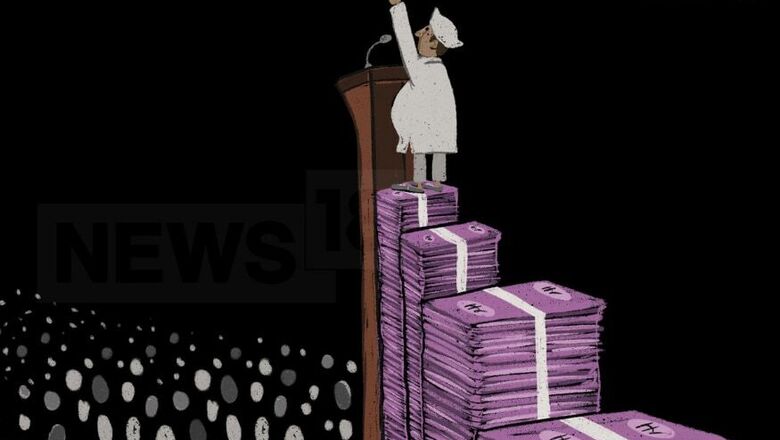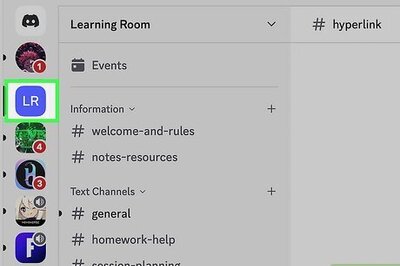
views
New Delhi: Of the total 67 registered unrecognised political parties, which submitted the details of donations received through electoral bonds with the Election Commission of India (ECI), at least 40 were not eligible to receive the funds as per the provisions of the Electoral Bond Scheme, 2018.
According to the scheme that was notified by the government of India on January 2, 2018, only the parties registered under Section 29A of the Representation of the People Act, 1951 (43 of 1951) and which have secured not less than one per cent of the votes polled in the last general election to the Lok Sabha or the Legislative Assembly, as the case may be, are eligible to receive electoral bonds.
The ECI, in its response dated November 5, 2019 to an Right to Information (RTI) application, filed by the Association for Democratic Reforms (ADR), said that 93 political parties, which included seven national parties, 19 state parties and 67 registered unrecognised parties, had submitted the details of donations received through electoral bonds to the ECI in a sealed cover in compliance with Supreme Court’s orders.
ECI's response showed that among the 67 registered unrecognised political parties that submitted the details of donations received through electoral bonds, only one — Gondwana Ganatantra Party (GGP) which last contested in Chhattisgarh Assembly Election 2018, securing a vote share of 1.73 per cent of the total votes polled — was eligible to receive the donations.
While 40 of them having vote-share ranging from 0.86 per cent to 0.0003 per cent were ineligible to get funding through electoral bonds, vote-share details of 13 parties were not available for the analysis, whereas 10 had last contested in the 2019 Lok Sabha election and, therefore, were not included in the analysis as the SC order required the submission of details of donations through Electoral Bonds up to May 15, 2019. Similarly, one party which contested in the Maharashtra assembly elections, 2019 and two parties which contested in by-polls were not taken into consideration.
The apex court in an interim order dated April 12, 2019 in 'ADR & Anr. vs Union of India & Ors. (2015)' had directed all the political parties which had received donations through electoral bonds up to May 15, 2019 to submit the details of such donations to the ECI in a sealed cover by May 30, 2019. It also said that the information to be submitted along with detailed particulars of the donors as against each Bond; the amount of each such bond and the full particulars of the credit received against each bond, namely, the particulars of the bank account to which the amount has been credited and the date of each such credit. Incidentally, 74 of the 93 parties including Congress and the Bharatiya Janata Party (BJP) submitted the required details after the stipulated deadline.
ADR in its report based on the analysis, which was released Friday, expressed concern over the fact that how such parties were able to receive donations through electoral bonds despite them being ineligible for it.
“The bond can be encashed only by an eligible political party by depositing the same in their designated bank account, raising the question that how political parties which fail to meet the required eligibility under the scheme have submitted details on Electoral Bonds to ECI in sealed cover,” ADR observed.
Since being notified by the central government in January, 2018, political donations through electoral bonds have been a matter of frequent public debate with several experts and activists claiming that it lacked transparency. Under the electoral bond scheme, any Indian citizen can purchase electoral bonds, which are issued by the State Bank of India (SBI), and transfer them to account of the political party within 15 days of it being issued. The electoral bonds are available in denominations from Rs 1,000 to Rs 1 crore. While the donor has to provide KYC details to the bank to purchase the bond, the identity of the donor is kept confidential.
According to ADR, at least 12,313 electoral bonds worth Rs 6,128 crore were sold by the SBI since March, 2018 when first tranche of such bonds was issued till October 2019. More than half of these or Rs 3,620 crore worth of these bonds were sold during March and April this year, just ahead of the general elections, of which political parties had redeemed bonds worth Rs 3,616 crore.














Comments
0 comment